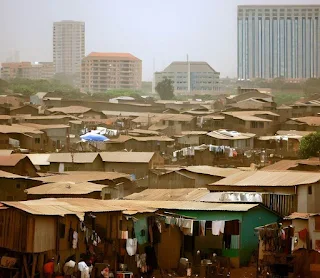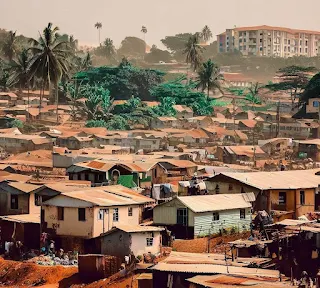Addressing Undocumented Land in Africa
Over 90 percent of Africa's rural communal and prime land is undocumented. Squatters on public land make up 60 percent of all urban dwellers.
The lack of land documentation and the prevalence of squatting pose major challenges to Africa's development. According to estimates, over 90 percent of rural communal land and prime land in Africa is undocumented, meaning that the rights and ownership of millions of people are insecure. Moreover, squatters on public land account for 60 percent of African urban dwellers, creating overcrowding, sanitation, and governance problems.
Challenges of formal land tenure and squatter settlements in Africa.
The lack of documentation for rural communal land and prime land and the prevalence of squatters on public land in urban areas have wide-ranging implications for land governance, economic development, and social equity.
Significant hurdles to Africa's progress are the lack of proper land documentation and the widespread phenomenon of squatting. It is estimated that more than 90 percent of rural communal land and prime land in Africa is undocumented, which means that the rights and ownership of millions of people are insecure. Furthermore, squatters on public land make up 60 percent of African urban dwellers, creating overcrowding, sanitation, and governance problems are significant hurdles to Africa's progress.
Estimates from UN agencies suggest that more than 90 percent of rural communal land in Africa lacks formal documentation, which means that the land rights of local communities are not adequately recorded or legally recognized. This situation poses challenges regarding land governance, resource management, and investment in rural areas.
Similarly, the documentation status of prime land, which often includes valuable agricultural or commercially attractive areas, varies across countries. While some prime land might have formal documentation, significant portions are also undocumented or subject to conflicting claims.
According to UN-Habitat's estimates, around 60 percent of urban dwellers in sub-Saharan Africa live in informal settlements or slums. These settlements are often characterized by inadequate housing, limited access to basic services such as clean water, sanitation, and electricity, and insecure tenure arrangements. The residents of these settlements are typically considered squatters, as their land occupation is informal and not legally recognized.
This situation has negative outcomes on the economic and social development of the continent. Without formal documentation of land ownership, many Africans cannot claim their property rights, participate in the capital appreciation of their land, sell or mortgage their land, or invest in higher-value crops. For example, in Nigeria, where only 10 percent of rural land is formally documented, many farmers face difficulties accessing credit, securing loans, or obtaining compensation for land acquisition by the government.
Moreover, land conflicts and disputes are common among neighbors, relatives, and investors, leading to violence and instability. For instance, in Kenya, where most land is held under customary tenure, clashes over land have resulted in hundreds of deaths and thousands of displacements. Additionally, women's rights to land are often ignored or violated by customary laws or practices. For example, in Zambia, where women comprise 78 percent of the agricultural labor force, only 19 percent of women own land compared to 48 percent of men.
Therefore, there is an urgent need to improve the data collection, aggregation, and transparency of African land ownership. This can be done by using GPS technology to map and document the land of smallholder farmers, as well as by strengthening the legal and institutional frameworks for land governance.
By addressing the documentation gap and promoting secure land tenure, African countries can foster sustainable economic development, reduce conflicts, and improve the living conditions of both rural and urban populations. These efforts are crucial for promoting social justice, supporting equitable access to land and resources, and unlocking the potential for inclusive growth across the continent.
African Informal Land and Squatters Questions and Answers
Question: Is all African land documented informally using customary practices, traditions, or informal agreements?
Answer: No. Formal land tenure is characterized by the adherence to statutory laws and regulations that govern land ownership and use. It involves legally recognized frameworks that define and protect land rights, responsibilities, and obligations. On the other hand, informal land tenure relies on customary practices, traditions, or informal agreements as the basis for land ownership and control. These informal arrangements may lack formal legal recognition but hold significance within local communities and shape land management practices. Securing formal land tenure is important as it gives individuals and communities a sense of ownership and legal control over their land.
Question: Can you be a squatter on public land
Answer: Yes, and it is a complex issue. The term squatter typically refers to someone who occupies or resides on land without legal ownership or formal permission from the landowner. Public land is owned by the government or state, and its use and management are regulated by laws and regulations. Squatting on public land typically involves individuals or communities setting up informal settlements or occupying land without legal authorization or proper tenure rights.
Question: Why is there a high percentage of undocumented land in Africa?
Answer: Factors contributing to the high percentage include war and conflict, historical factors, weak land governance systems, complex land tenure arrangements, and limited resources for land administration.
- Dangerous Erupting Volcanoes of Africa

- Top 20 Largest Countries in Africa

-
What is an African Proverb

- African Water Spirit Mami Wata

-
Ancestors are Guardian Angels








